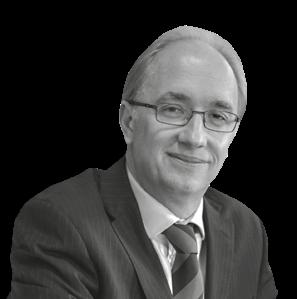
2 minute read
From the Head
ON SUNDAY 12 SEPTEMBER, THE FIRST OP SPORTS FESTIVAL IN TWO YEARS TOOK PLACE, WITH AN EXCITING TIMETABLE OF FIXTURES INCLUDING TOUCH RUGBY, NETBALL AND HOCKEY. IT WAS FANTASTIC TO SEE SO MANY FAMILIAR FACES BACK ON THE SCHOOL SPORTS GROUNDS.
There can be few schools more medical than The Perse. Our founder Dr Perse practised medicine for 30 years; he was instrumental in bringing clean water to Cambridge via Hobson’s Brook and in so doing saved countless lives. One of the School’s first pupils, Robert Tabor, popularised the use of quinine to treat malaria. Tabor became a celebrity doctor and went on to successfully cure Charles II of England, the French Dauphin, and the Spanish Queen of their fevers.
Today, medicine is one of the most popular degree courses read by OPs, and over the last five years over 100 Perseans have gone on to study medicine at university. The School is doing its bit to staff the NHS, and the ‘meet our medics’ article features the personal stories of Perse doctors. As the pandemic continues, The Perse is very proud of all its former students employed in health and social care, and I take this opportunity to thank our nurses, doctors, physiotherapists, administrators, carers, researchers, lab technicians, and related staff for all their amazing work.
Covid-19 has made us all experts in infection control, and the School has developed impressive test and trace capabilities. Early in the pandemic we acquired a Samba II point of contact testing machine, and we have carried out nearly 400 tests on pupils and staff. These accurate and rapid tests have allowed us to identify and isolate Covid-19 cases in School far faster than would have been possible waiting for NHS PCR tests. This means that Covid-negative pupils and staff have returned to classes quickly, whilst positive cases have been sent home to selfisolate before they can infect others. Whilst Covid-19 has certainly made the last six terms challenging, Samba coupled with rigorous cleaning and copious ventilation have limited the pandemic’s impact on The Perse. I hope Drs Perse and Tabor would approve of our twenty-first century public health measures!
As well as thanking all those who work in healthcare, I would also like to thank those employed in education. With limited levels of vaccination in children, it is inevitable that the pandemic will linger longest in schools. There is bound to be more disruption over the winter months, and school staff will have to work hard to preserve the continuity of academic education, extra-curricular opportunities, and pastoral care to children whose lives have already been significantly disrupted. When the pandemic finally ends it must be remembered that young people, in many ways least at risk from Covid-19, have gone without education and missed out on rites of passage to protect older generations. They will also be the ones who, over the decades to come, pay much of the pandemic bill. Children do not have the vote so their voices can be underrepresented in the political process. But we have much to thank them for, both now and in the future, as the country recuperates post-pandemic.

With best wishes,









